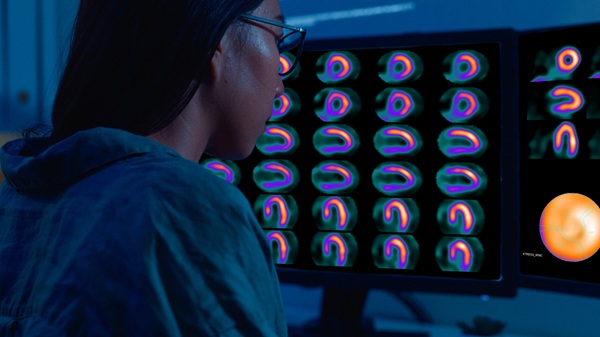Henry Ford Researchers Publish Multiple Landmark Cancer Genome Studies
Researchers from the Henry Ford Cancer Institute are featured in several prominent research papers all appearing this month in Cell publications, two of which are included in the organization’s flagship publication, Cell. Their manuscripts are part of The Cancer Genome Atlas (TCGA) Research Network, a joint effort of the National Cancer Institute (NCI) and the National Human Genome Research Institute (NHGRI).
Henry Ford was one of the original contributors to TCGA, a national, coordinated effort formed back in 2006, to begin a ten-year, deep dive into the molecular basis of certain kinds of cancers. One of the first types of tumors studied in this landmark precision medicine effort was glioblastoma. Nearly 25% of all the gliomas studied over the course of the initiative were donated by Henry Ford’s Hermelin Brain Tumor Center.
“The Cancer Genome Atlas Project has been the pioneer in large scale collaborative projects in biomedical science,” said Jean C. Zenklusen, M.S., Ph.D., Director, TCGA. “The proof of that is that institutions, large and small, have contributed continuously, not only through samples, but, most importantly through leading and helping in the analysis of the data it produced. Henry Ford is one of our most outstanding collaborators, having been involved with TCGA from the very first project in glioblastomas.”
“We knew from the very beginning how critical this project would be to unlocking the future of cancer care and that’s why we committed so fully to that original pilot study,” said Steven N. Kalkanis, M.D., Medical Director, Henry Ford Cancer Institute, and Chair, Department of Neurosurgery. “We have gained so much over this ten year period - an ability to see beyond tumors themselves in the body. We now have intricate clues as to how many of those tumors behave and that’s informing the decisions we’re making with our patients. This is the true future of precision medicine.”
By 2016, TCGA’s team had studied 33 different tumor types, including ten rare cancers, from a total of 11,000 patients nationwide. To further the effort, the researchers then tackled the mountain of data that had been collected, searching for overarching themes, not specific to any cancer type. Appearing in Cell this month are:
Machine Learning Identifies Stemness Features Associated with Oncogenic Dedifferentiation. Houtan Noushmehr, Ph.D., co-led a study of cell behavior during cancer progression, studying the point at which cancer cells take on the identity of stem cells, a process called de-differentiation. “We know stem cells are harder to destroy because they are so adaptive,” said Noushmehr. “We don’t want cancer cells to have that kind of agility. If we can target the point at which these cells take on that identity, we can stay ahead of that progression.” The study is also illustrated in a video released along with the publication.
An Integrated TCGA Pan-Cancer Clinical Data Resource (TCGA-CDR) to Drive High Quality Survival Outcome Analytics. Laila M. Poisson, Ph.D., participated in the creation of a massive, standardized dataset of patient outcomes that could be used for future research, resolving more than 1,000 quality concerns. “We had 11,000 patients across 33 tumor types, each with multiple records submitted over ten years. Having researchers worldwide wrestle with these data to get defined endpoints is inefficient and quickly leads to inconsistencies,” said Poisson. “We needed to build a trusted dataset that could be revisited over and over again.”
The Henry Ford research team is available for interviews regarding both manuscripts and their respective roles in the future of cancer treatment and research.
###
MEDIA CONTACT:
Brenda D. Craig
Director, Media Relations
Henry Ford Health System
313-283-8331
bcraig3@hfhs.org
.svg?iar=0&hash=F6049510E33E4E6D8196C26CCC0A64A4)

/hfh-logo-main--white.svg?iar=0&hash=ED491CBFADFB7670FAE94559C98D7798)








